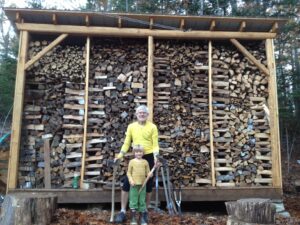Going Off the Grid Is Not Just for Hippies!
The Global Energy Crisis and Off-Grid Solutions
In 2024, mass blackouts hit major cities all over the world, including parts of the U.S., Europe, and even India’s urban centers, making energy independence a priority. Thousands of homes in Kerala, though, which were operating exclusively on solar power, remained unaffected. More and more, individuals are researching off-grid options, proving that it’s no longer hippie cool to live off the grid—it’s now a smart, eco-friendly choice for homes around the world.
The growing unreliability of conventional power grids, the rising cost of electricity, and climate catastrophes have led many to rethink their reliance on centralised energy systems. Photovoltaic panels have decreased from $6 per watt to just $0.3 a watt over the last 30 years. Governments, businesses, and individuals are looking for ways to generate their own power, to save energy for a rainy day, and to reduce their use of fossil fuels. Off-grid living is no longer a fringe phenomenon—it’s a feasible adaptation to the new world.
What Does It Mean to Live Off the Grid?
Off-grid living demands independence from public infrastructure—generating your own power, harvesting rainwater or ground water, and at times even growing your own food. It is not necessarily a lonely wilderness existence; numerous off-grid systems operate in suburban and even city locales.
People adopt off-grid lifestyles for various reasons: some to reduce their carbon footprint, others to reduce the cost of energy bills, and others as a form of security—having access to power and resources in case of system failures or natural disasters.
Lessons from Jim Merkel: A Pioneer in Off-Grid Living
Jim Merkel, author of Radical Simplicity: Small Footprints on a Finite Earth, has been a vocal advocate for off-grid living and resilience. A former military engineer, Merkel left his well-paying job to live more sustainably. He and his family adopted off-grid practices, employing solar for electricity and hot water, a root cellar, a well, rainwater catchment , and home gardens and orchards. His book addresses how individuals can live with less environmental impact but still have a rich life.
Each year Merkel cuts and splits firewood for heating their super-insulated home. The same stove used for heating, also cooks the food and heats the hot water. To use less firewood, they installed a mini-split heat pump which they can run on sunny days to heat, cool or dehumidify their living space. They also produce enough solar power to partially charge their electric vehicle, boil maple sap into syrup on an induction hotplate, and run a refrigerator and freezer. Because their house has a deep one-foot thick insulated wall cavity, and triple pane windows, their heating needs are fairly low.

Merkel has inspired many to embrace off-grid ways and demonstrated that resilience is not just about energy self-sufficiency—it’s also about reducing waste, removing unnecessary consumption, and living in balance with nature. His approach is in alignment with the overall global movement toward regenerative living and local economies.
His vision of extreme simplicity challenges people to examine their needs, reduce excess consumption, and find happiness in self-sufficiency. He demonstrates that living off the grid isn’t deprivation—just rethinking what actually enriches life.
The Rise of Microgrids and Energy Independence
With the advancement in technology, off grid systems are becoming more affordable and reliable.. Developments like lithium battery storage, smart inverters, and decentralized microgrids allow people to generate and store their own electricity efficiently.
Microgrids are independent energy systems that are capable of operating independently of the grid. In Kerala, for instance, individuals are embracing solar-based microgrids, which ensure a power supply even in remote locations. The state government has been encouraging solar installations, and off-grid solutions are now within reach even for middle-class households.
In other regions of the globe, such as Puerto Rico and California, where frequent grid failures are caused by hurricanes and wildfires, microgrids have been saviors. They ensure energy security and keep essential services—hospitals and water treatment plants among them—in operation when the grid collapses.
Sustainable Water and Waste Management
Beyond energy, off-grid living also involves managing water and waste sustainably. Many off-grid households rely on rainwater harvesting, borewells, and gravity-fed water systems. Rainwater harvesting, in particular, is gaining popularity in water-scarce regions, ensuring a year-round water supply without dependence on municipal systems.
Composting toilets, biogas digesters, and greywater recycling manage waste effectively. They not only prevent environmental pollution but also yield valuable resources—compost for farming and biogas for cooking.
Off-Grid Farming and Food Security
Permaculture, a nature-based sustainable agriculture practice, is common among off-grid dwellings. Permaculture emphasizes diversity, enhancing soil structure and fertility, and low external input. Home gardens, food forests, sprouting and aquaponic systems allow individuals to grow their own food, reducing industrial agriculture and long supply chains.
Food security is increasingly becoming a matter of concern in many parts of the world, with supply chain disruption, tariffs, inflation, and climate change threatening to disrupt agricultural production. Off-grid agriculture solutions like hydroponics and vertical gardens allow residents of urban areas to produce food even in tiny spaces.
The Financial and Environmental Benefits of Off-Grid Living
Living off the grid is not just good for the planet—it pays. While solar panels, batteries, and water installations can have a staggering price tag up front, the pay-back period is getting shorter as costs come down. While the average household breaks even in 8-12 years, shorter pay-back is possible by first reducing energy usage through efficient appliances and habits.
Environmental benefits are:
- Low carbon footprint
- Reduced pressure on public utility infrastructure
- Less non-renewable resource usage
- Water preservation and local ecosystem conservation
The growing popularity of off-grid dwellings also has its effect on governmental policy. Renewable energy systems, rainwater harvesting, and green building construction subsidies as well as tax credits offered by the government are available in most countries today.
Challenges and Off-Grid Living Myths
While it offers many advantages, off-grid living is not without its drawbacks. Setting up a completely self-sufficient system requires smarts, patience, and some initial investment of capital. Some areas have restrictive building codes and regulations that prohibit going completely off-grid. Lastly, extremely harsh weather patterns—long monsoons or winter seasons—make it difficult to use solar or wind power alone.
Jim and Susan have a gas powered back-up generator that is needed if clouds persist for over 4 consecutive days. Although it is only used 4 to 6 times a year, they understand that they are still using fossil fuels, but a small fraction of the average household.
A misconception is that off-grid living is sacrificing modern conveniences. Off-grid homes are actually as comfortable as their grid-connected counterparts. With improvements in energy-efficient appliances, battery storage, and water conservation systems, it’s possible to live off the grid without sacrificing quality of life.
The Future of Off-Grid Living
Governments all over the world are embracing the benefits of decentralized energy systems. Countries like Sweden and the Netherlands are thinking about energy-positive communities—homes that generate more energy than they consume.
With rising energy costs, increasing climatic uncertainty, and the rate of technological advancement, living off the grid will become more the standard. From a full off-grid homestead to having only a solar-powered apartment, the movement is broadening. And it isn’t just for hippies—it’s for anyone who wants a more intelligent, greener, and independent way of life.
Final Thoughts
The shift to off-grid living isn’t an abdication of modernity—it’s a new definition of progress. It’s regaining control over essential resources, reducing waste, and harmonizing with the natural world. Whatever one chooses to do, whether it’s small steps like having solar panels fitted and catching rainwater, or going all the way off the grid, the future is definitely pointing this way.
As Jim Merkel and many others have illustrated, going off the grid isn’t a step back—no, it’s a step ahead. With a doubtful era around the corner, adaptability is paramount. And building a sustainable, self-reliant lifestyle isn’t an option anymore—it’s a necessity.
